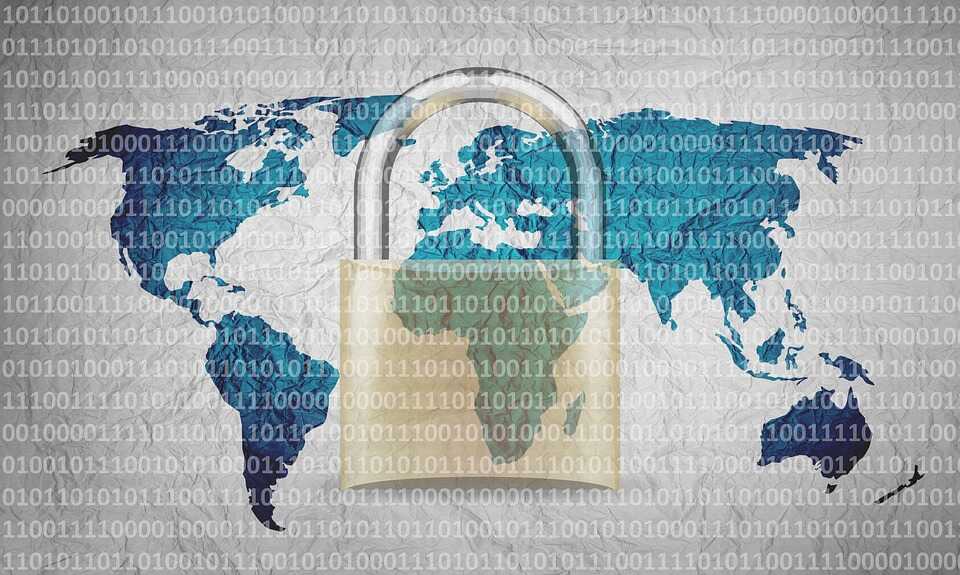


Trusted by




& many more
Trusted by



& many more
CurrentWare’s Optional Features to Improve Transparency & Limit Privacy Impacts
The best computer monitoring software provides the flexibility you need to monitor computer activity while respecting privacy expectations
Here are some of the best privacy enhancing features of CurrentWare
End-User Reports
Give your users access to their own computer activity data so they can see exactly what data is being captured and use it for their benefit.
Custom Data Retention
Automatically delete user activity data after a set period of time. Maintain auditable records of computer usage for only as long as needed.
Monitoring Software Notifications
Periodically display a pop-up message to notify your users that their computer activity is being monitored. The notification’s message can be customized.
Show in System Tray
Enable this feature to make the CurrentWare Client visible in the system tray of your users’ computers.
Limit Access to User Data
Restrict access to user activity data with a password-protected console and unique data access permissions for each manager.
Schedule Monitoring
Schedule BrowseReporter’s computer tracking to only collect data during work time. Turn off monitoring during non-work hours and personal browsing periods.
Disable Computer Tracking
Take full control over what is being monitored with controls for choosing what is captured and excluding specific users from being monitored.
Admin Activity Logs
These audit logs help your security, auditing, and compliance teams answer “who did what, where, and when?” when it comes to configuration changes and data access within the CurrentWare Suite.
Workplace Privacy Best Practices When Using Employee Monitoring Software
Be Transparent About Employee Activity Monitoring
Employees that are not aware that they are being monitored, why they are being monitored, and how they are being monitored are less likely to find the use of employee computer monitoring software acceptable.
CurrentWare’s employee and computer monitoring software solutions can be deployed with an optional stealth mode or configured to periodically notify employees that they are being monitored.
- Turn on BrowseReporter’s End Users Reports feature to give employees access to their data. This gives them the autonomy to monitor their own productivity.
- Disclose the scope of employee monitoring during onboarding and within company policies.
- Make sure employees understand how data is being collected, what data is being collected, and how it will be used.
Ensure Confidentiality & Privacy for the Employees Involved
While complete confidentiality cannot be guaranteed for all employees involved, the workplace investigation process must be conducted with as much confidentiality as possible for the parties involved.
Any monitoring or data collection should be conducted in compliance with applicable laws and regulations, as well as in accordance with the employer’s policies and procedures.
Additionally, it is essential to maintain the confidentiality of sensitive information and respect the privacy rights of employees during the investigation.
Consult With Legal Counsel
When it comes to workplace privacy, both the employee and the employer have rights that vary based on the jurisdiction of the company, as well as any relevant collective bargaining agreements.
Before monitoring employee computer activity for workplace investigations, be certain to consult with legal counsel to understand what employment laws apply to your organization and what steps you must take to monitor employees lawfully.
At a minimum your legal team will recommend a Workplace Monitoring Policy that outlines what data is collected and how it will be used.
How to Increase Buy-in for Employee Monitoring
- Consult your employees. Involve a representative sample of employees to ensure that their voices are heard. Allow them to voice any concerns they have regarding your use of employee computer monitoring software.
- Do not track more than necessary. Only collect, store, and use the types of data that are adequate and relevant for the stated purposes. Overly invasive monitoring methods such as capturing individual keystrokes and webcam feeds are highly likely to infringe on employee privacy rights unless there is a legitimate business need that cannot be adequately met through less invasive methods.
- Limit access to employee monitoring data. Restricting access to monitoring data to a “need to know” basis limits opportunities for misuse. Use CurrentWare’s operator permissions to password protect the console and limit who has access to certain features.
Protect Employee Monitoring Data From Misuse
Employee monitoring data can be sensitive. Organizations need to ensure that administrative and technical security measures are in place to prevent data from being misused or leaked to unauthorized parties.
- Password-protect employee data. The CurrentWare Console can be password protected to limit who has access to employee computer activity data.
- Limit data access. With CurrentWare's Operator Accounts you can provide a manager with access to their department's data without providing them with the data of other departments. You can also use the email reports feature to automatically send data about specific users/PCs on a regular basis.
- Only use employee computer activity data for its intended purpose. If employees consent to their data being collected for the purpose of enforcing acceptable use policies it is critical that it is not reappropriated for another purpose without their explicit and informed consent.
Only Monitor What is Needed
Employee monitoring is unique for every organization, and yours is no exception.
When you monitor your employees the best practice is to only monitor what is needed to meet your organization’s goals.
Rather than monitoring every single action your employees take without a clear reason to do so, you should map your clearly defined goals to the data points you need to collect in order to meet them.
This ensures that the monitoring methods used are as minimally invasive as is needed to meet your goals. You’ll also improve buy-in by clearly demonstrating the intended purpose of the monitoring.
Get Informed Consent From Monitored Employees
When implementing an employee monitoring solution, it is best practice to get explicit and informed consent from your employees that they are going to be monitored.
Even if there are no laws that specifically require that you disclose to employees that they are being monitored, it is the best practice to do so anyway.
What constitutes informed consent and lawful data collection varies by jurisdiction. As always, consult with legal counsel prior to monitoring employees to ensure you are compliant with data privacy and security requirements.
Combine the Insights With Other Workplace Investigation Techniques
Workplace investigations require thorough documentation and evidence before a final decision is made and corrective action is implemented.
While workplace investigation software is critical to the investigation process it is most effective when combined with traditional investigative techniques.
- Gather Other Evidence: Combine computer activity data with any information you already have, such as an employee complaint, a supervisor’s report, written statements from witnesses, or written warnings.
- Conduct Interviews: Interview witnesses, the involved parties, and other employees that may have insights into the alleged conduct. Gather all relevant information in thorough notes.
CurrentWare’s Commitment
to Data Security & Privacy
CurrentWare is committed to the security of its platform, its customers, and their data. Click the button below to learn more about the security measures we implement internally and within the CurrentWare Suite.
CurrentWare's Key Features
User Activity Monitoring
Track web browsing, software use, search queries, and more
Screenshot Monitoring
Take automatic screenshots or remotely view desktops
Track Software Usage
Get insights into software usage trends in your organization
Transparent & Stealth Modes
Run silently in the background or provide notice of monitoring
Block USB & Other Devices
Set full access, read only or no access on storage devices
Device Whitelist
Allow only authorized storage devices to be used
Block File Transfers
Prevent files from being transferred to portable storage
DLP Activity Reports
Track file transfers, storage device use, file operations, and more
Block Websites
Block websites based on
URLs & content categories
Block Downloads/Uploads
Prevent uploading and downloading based on file type
Application Blacklisting
Block specific Windows
applications from launching
PC Power Management
Remotely track and control PC power states
Central Web Console
Save time with a central admin console; optionally integrate Active
Directory OUs or security groups
Platform Security
Protect your CurrentWare console
with 2FA, passwords, privilege
management, and more
Offsite Management
Extend onsite security policies to computers running outside the corporate network
SQL Server Supported
Database scaled for enterprise and
large business operations using
Microsoft SQL Server

